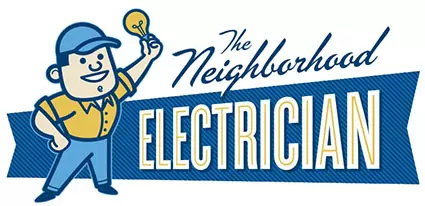What You Should Know Before Purchasing a Whole House Generator
Purchasing a whole house generator can be an intimidating task. It’s a big investment and there are a lot of factors to consider. What size do you need? How much will it cost? How will it affect your energy bill? These are all valid questions that need to be answered before making the decision to purchase a whole house generator. In this article, we will explore what you should know before purchasing a whole house generator. We will look at the types of generators available, their benefits, installation costs, and maintenance requirements. Armed with this knowledge, you’ll be able to make an informed decision about which type of generator is best for your home and budget.
Types of generators
There are three types of generators: portable, standby, and inverter.
1. Portable generators are the most affordable option and can be used for a variety of purposes, including powering tools and small appliances during a power outage, camping, or tailgating. They typically run on gas or propane and need to be manually started.
2. Standby generators are permanently installed and wired into your home’s electrical system. They automatically turn on when the power goes out and run on either gas or propane. Standby generators are more expensive than portable generators but provide peace of mind in knowing that your home will always have power, even during extended outages.
3. Inverter generators are a newer type of generator that is becoming more popular due to their quiet operation and clean power output. They use an alternating current (AC) to produce direct current (DC) power, which is then inverted back to AC to power your home’s appliances and electronics. Inverter generators can run on gas or propane and are more expensive than portable or standby generators.
No matter which type of generator you choose, it’s important to make sure it is properly installed and maintained so that you can benefit from its power.
Pros and cons of whole house generators
Whole house generators have become a popular option for homeowners looking for a reliable backup power source. But like any major purchase, it’s important to weigh the pros and cons before making a decision.
PROS:
1. Whole house generators provide peace of mind in the event of a power outage. Knowing that you have a backup power source can help you weather any storm, whether it’s literal or figurative.
2. Whole house generators can save you money on your electric bill. By generating your own electricity, you can avoid costly power outages and the need to use more expensive emergency backup power sources.
3. Whole house generators are relatively low maintenance. Once installed, they typically only require annual maintenance to keep them running smoothly.
CONS:
1. Whole house generators can be expensive to purchase and install. Although the initial investment may be sizable, the long-term savings on your electric bill can make whole house generators a wise investment.
2. Some localities have restrictions on where whole house generators can be installed. Before making a purchase, be sure to check with your city or county planning office to see if there are any zoning regulations that would limit where you can install your generator.
How to choose the right generator for your home
If you’re considering purchasing a whole house generator, there are a few things you should keep in mind to ensure you select the right one for your needs. Generator size is important to consider- you’ll want to make sure it’s powerful enough to run everything you need it to. You should also think about how often you’ll need to use it and how easy it is to operate. Additionally, consider what type of fuel it uses and how much noise it makes. With these factors in mind, you can choose the perfect generator for your home.
Installation and maintenance tips
If you’re considering purchasing a whole house generator, there are a few things you should know before making your purchase. Here are a few tips on installation and maintenance:
1. Make sure you have the proper permits and approvals before installation.
2. Work with a qualified electrician or contractor to ensure proper installation.
3. Follow the manufacturer’s instructions for proper use and maintenance of your generator.
4. Have your generator serviced regularly by a qualified technician.
5. Be prepared to handle any fuel shortages or power outages that may occur.
By following these tips, you can be sure that your whole house generator will be installed and maintained properly, providing you with peace of mind and reliable backup power when you need it most.
Conclusion
Purchasing a whole house generator is a major investment and should be considered carefully. The size of the generator, fuel type, installation requirements, local laws and cost all need to be taken into account when making this decision. With proper research and the help of an experienced professional, you can find the right solution for your home so that it will have reliable power supply in any situation.

